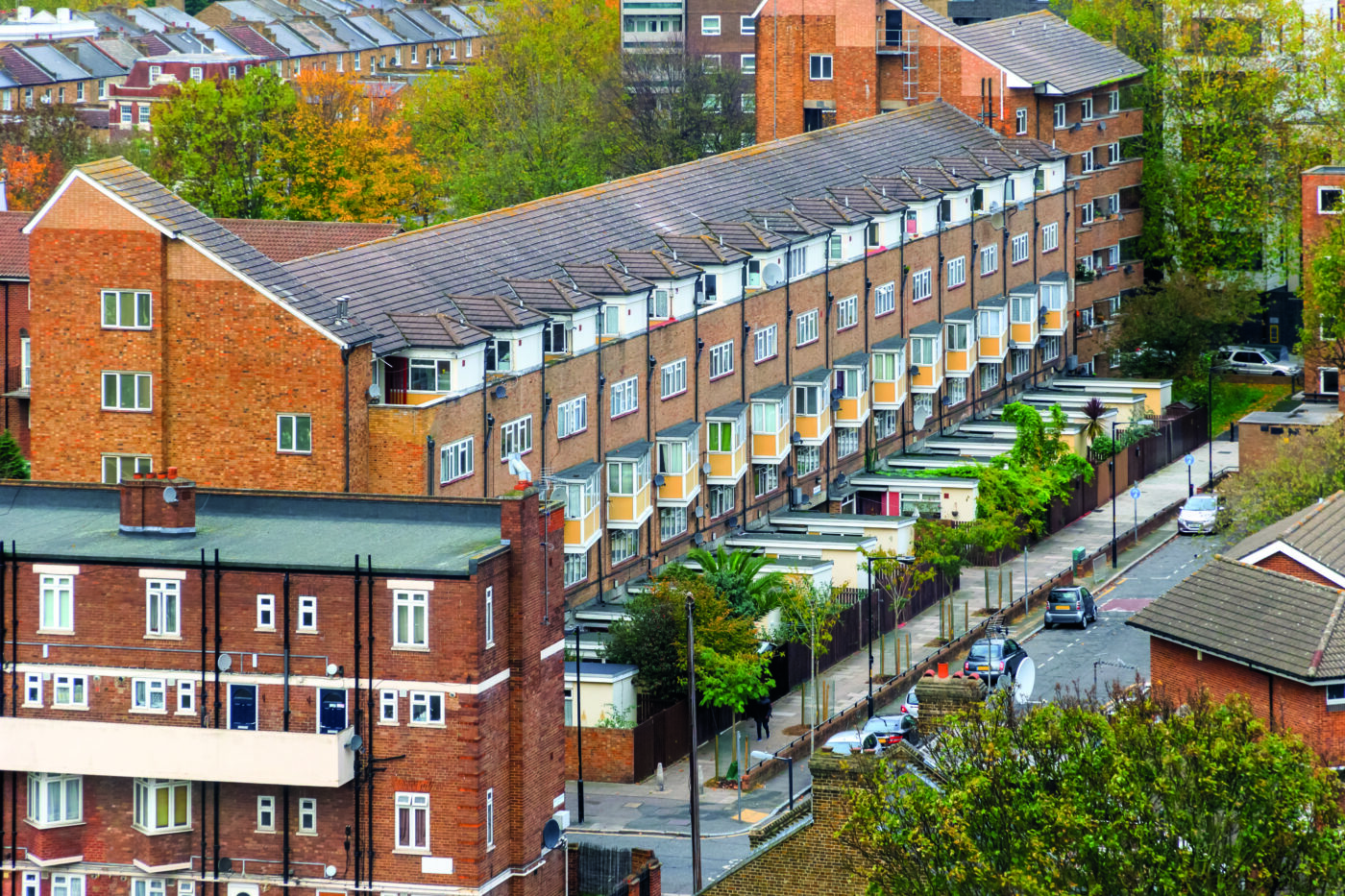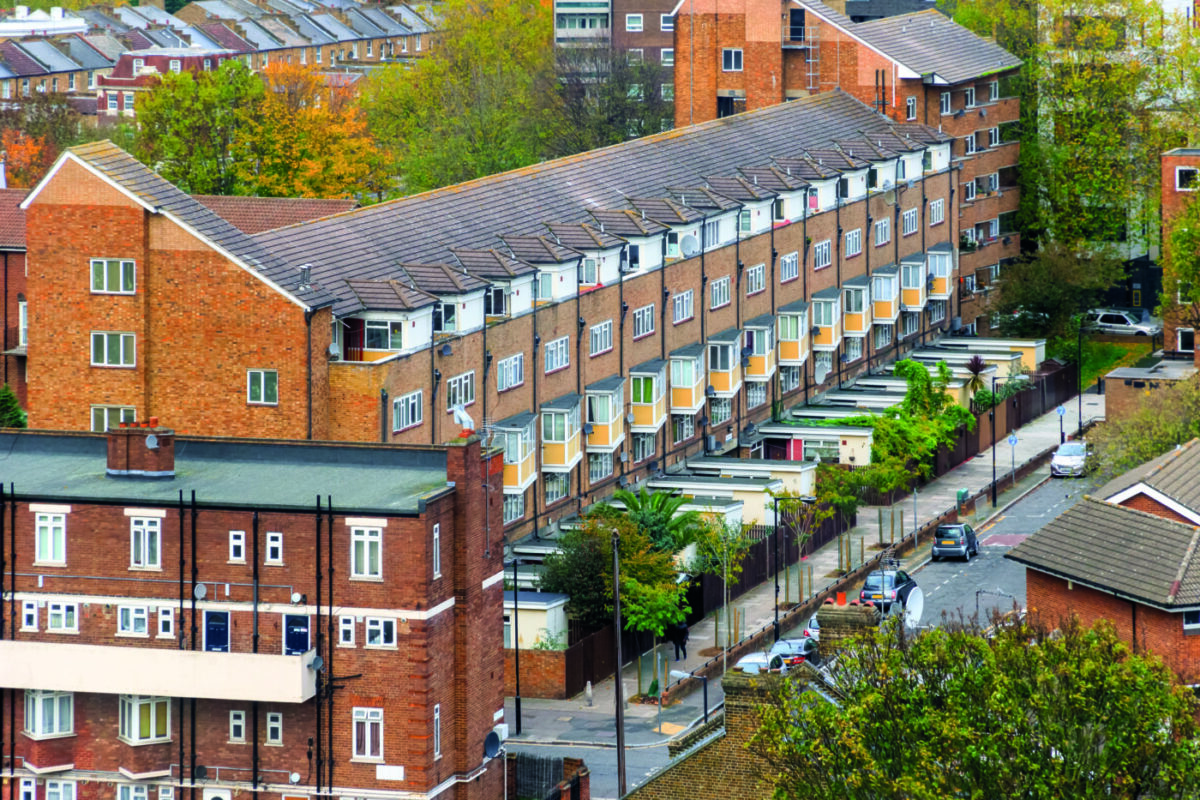In March, the Climate Action group came together for a session exploring housing quality, energy efficiency, and social value. Caroline Sprake from the Building Research Establishment (BRE) opened with an overview of her team’s work using housing and energy data to inform policy and improve living standards, highlighting projects like the “Cost of Poor Housing.”
Antoine Pellet from HACT (Housing Associations’ Charitable Trust) then introduced the Retrofit Credit Scheme, a model that funds home upgrades by generating carbon and social value credits. He outlined how retrofit projects not only reduce emissions but also improve resident well-being, lower energy bills, create local jobs, and strengthen communities—demonstrating retrofit’s potential to drive both environmental and social progress.
BRE’s Housing Work
Caroline Sprake, Housing Data and Insights Team Lead at the Building Research Establishment (BRE), provided an overview of BRE’s housing work, which is focused on improving housing quality and ensuring everyone has access to a safe, healthy home. She emphasized the strong link between poor housing and adverse health outcomes, as well as the broader societal costs- issues explored in depth in BRE’s influential ‘Cost of Poor Housing’ report.
BRE’s housing team is divided into two parts to focus on different aspects of their work:
-
National Team – This team leads government-funded national housing surveys across all four UK nations, gathering data through physical inspections and modelling tools. Their work helps establish a baseline understanding of housing stock performance—particularly in terms of energy efficiency and fuel poverty—and provides evidence to inform national housing and energy policy.
-
Local Team – This team supports local authorities with housing stock modelling and analysis, helping them meet their duties under the Housing Act 2004. BRE provides granular data on issues like excess cold and disrepair, enabling targeted action at the dwelling level. Local authorities also benefit from access to the Housing Stock Condition Database, a tool that helps identify priority areas and direct resources where they are needed most.
Caroline highlighted BRE’s role in enabling data-informed decisions at both the national and local level, helping to monitor changing housing conditions and support policies aimed at creating healthier, more energy-efficient homes.
HACT’s Retrofit Credits Scheme
The group then heard from Antoine Pellet who shared the methodology behind HACT’s Retrofit Credit Scheme, designed to improve housing quality while supporting decarbonization. This scheme helps to enable the wide range of benefits that retrofit projects can provide, such as better insulation and windows, including improved comfort and health, particularly for vulnerable residents like the elderly. Additionally, retrofitting projects can alleviate the economic burden on residents by lowering energy bills, offering financial relief, particularly in times of rising living costs.
The scheme also provides broader social value: boosting community cohesion, creating local jobs in the green sector, and encouraging sustainable behaviour. Antoine explained how retrofit credits, purchased by businesses and organisations, fund further improvements in the same communities—creating a circular, impactful model.
This program operates on a hyperlocal scale, focusing on specific communities and regions, with ongoing development across the UK. This allows for a targeted impact, ensuring that local organizations can align their decarbonization goals with the community’s specific needs.
Key Takeaways
The work of BRE’s Housing Data & Insights Team and HACT, through their retrofit credits scheme, bring a number of societal, environmental and economic benefits, such as…
-
Improves residents’ health and well-being by tackling cold, damp, and unsafe housing.
-
Supports vulnerable groups, especially the elderly, with safer, warmer homes.
-
Reduces energy bills and fuel poverty through energy-efficient upgrades.
-
Lowers carbon emissions and contributes to national decarbonisation goals.
-
Creates local jobs and upskilling opportunities in the green economy.
-
Strengthens community ties and fosters local engagement.
-
Provides data-driven insights to help local authorities target housing investment effectively.
-
Generates long-term social value through a circular funding model reinvesting in communities.
-
Encourages sustainable behaviours among residents.
-
Informs national housing policy with evidence from research like BRE’s Cost of Poor Housing.

Get Involved
This session was held as part of the Constructing Excellence Climate Action group. To find out more about this group and their activities, visit the Climate Action page. Alternatively, find out about our other groups here or explore our upcoming events on the events page.



